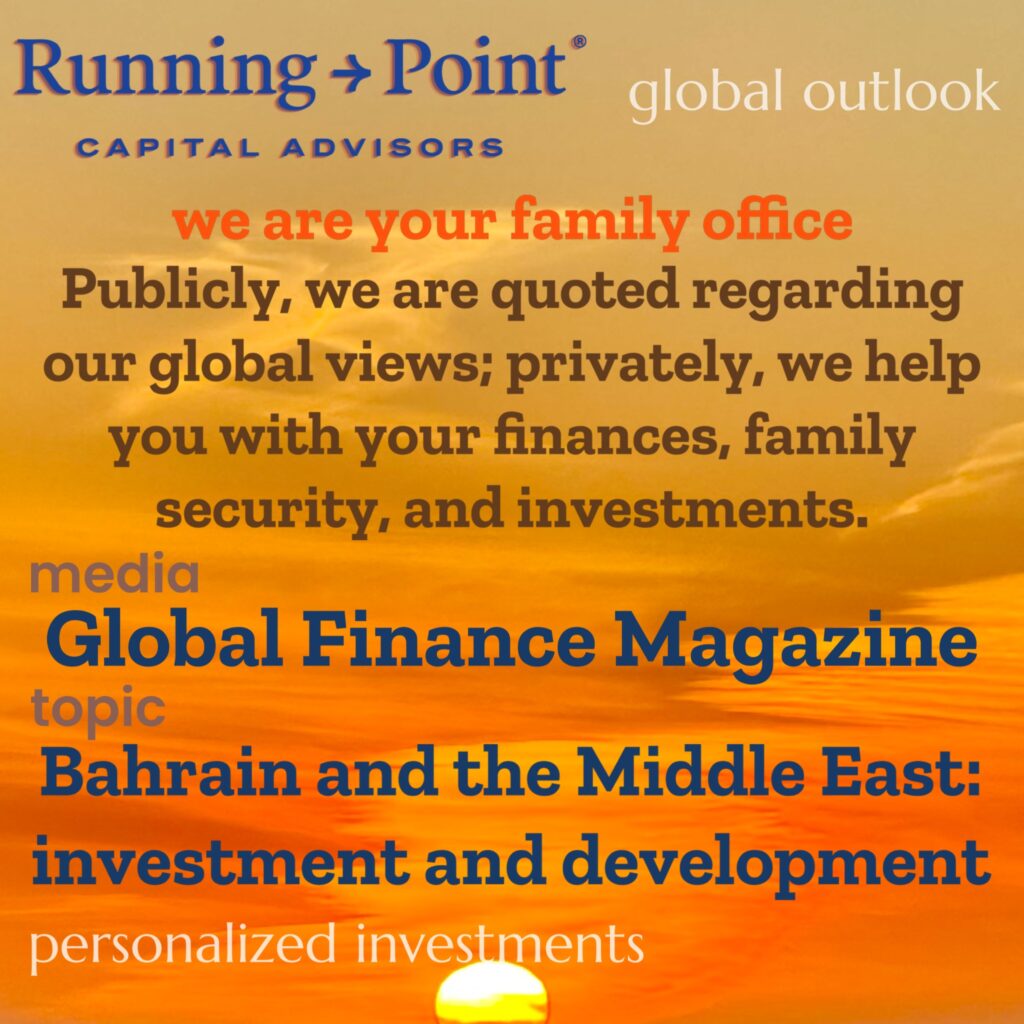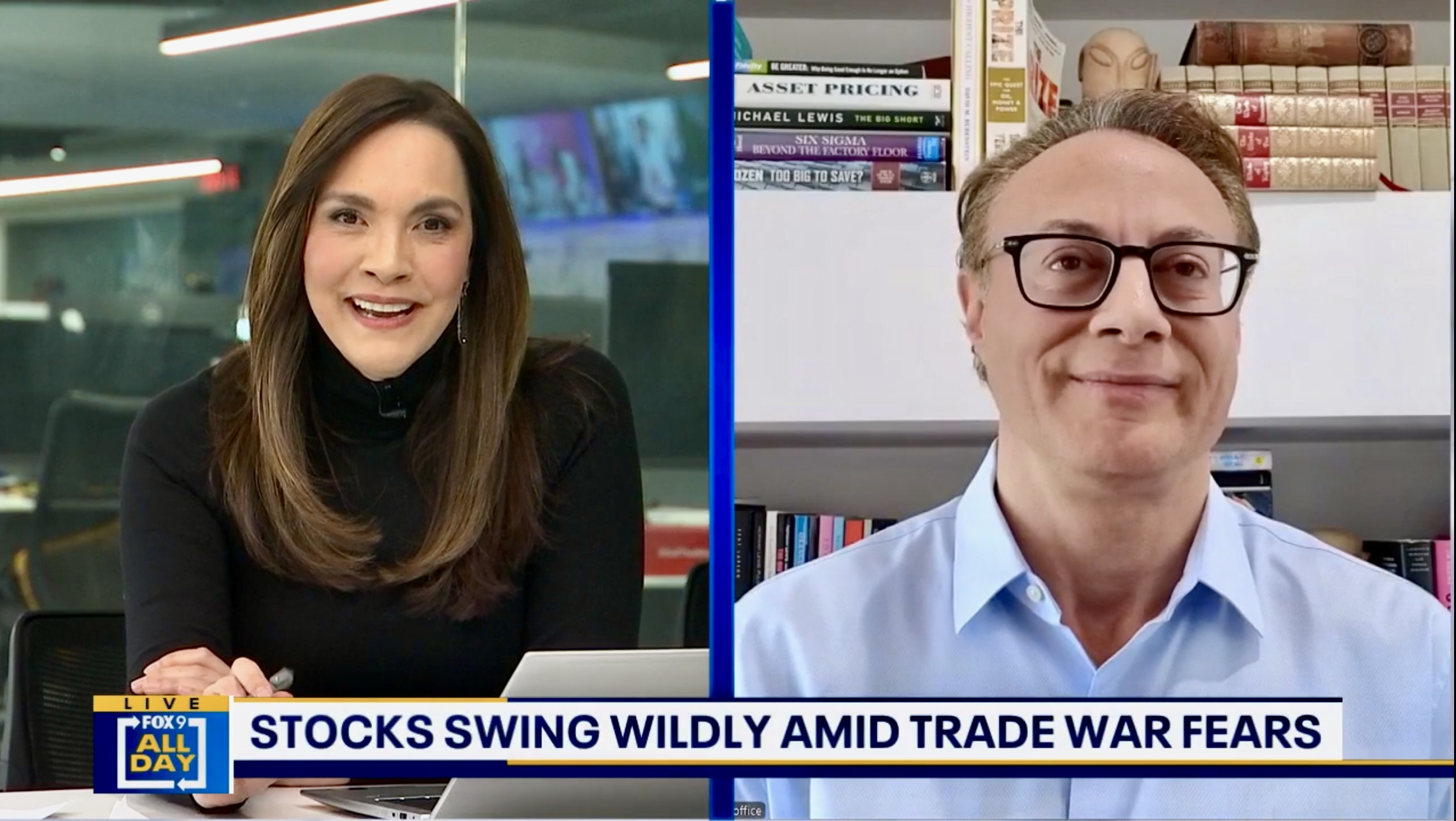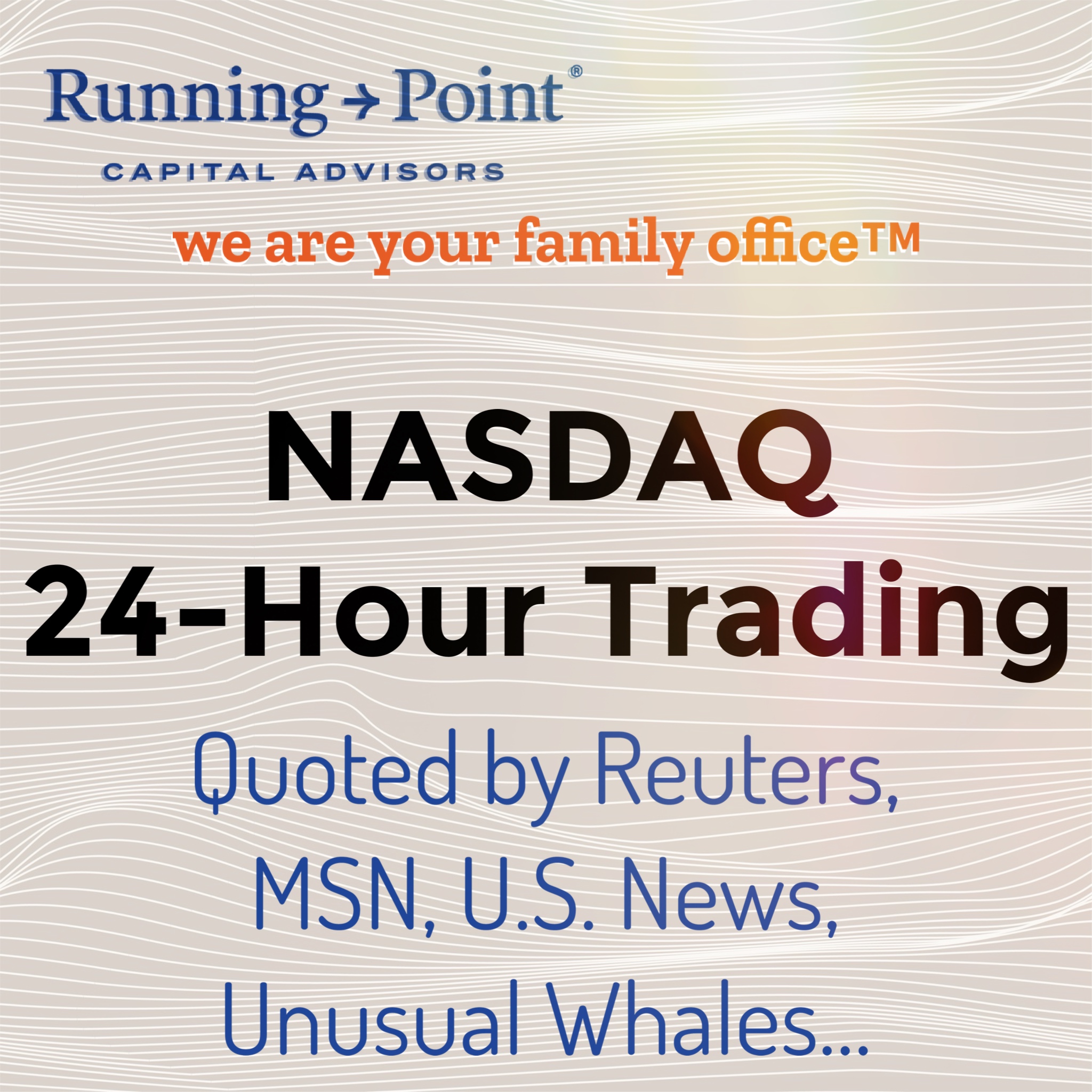Economic diversification and financial center development
“Publicly, we are quoted about our global views; privately, we help you with your finances, family security, and investments.”
Running Point and its chief investment officer, Michael Ashley Schulman, CFA, were quoted by Global Finance Magazine—in an article by Mark T. Townsend, “Bahrain: Looking For Buy-In”—regarding Bahrain’s efforts to diversify its hashtag#economy and bolster its regional status.
🏙Manama is a wonderful and still extremely important center of influence within the Middle East, but is no longer the first financial hub people think of—its sovereign bond ratings have drifted down over the last couple decades from “A” to “B+” resulting in local banks being downgraded alongside it—Dubai, Qatar, and Riyadh are now more top of mind as international financial centers (IFCs). Bahrain’s politics have seemed unsettled since 2011, when a mostly Shia opposition—inspired by the Arab Spring uprisings—rioted against the government’s Sunni-minority-led Al Khalifa ruling family and security forces clashed with pro-democracy protestors. Tear gas and police battles tarnished its image, unnerved its financial credentials, and capped its momentum.
⚙In truth, Bahrain was already losing its financial crown in the aftermath of the great financial crisis of 2008/09 with the Dubai International Financial Centre, established in April 2006, and the Qatar Financial Centre, set up in March 2005, clearly ready to take the lead as IFCs.
🛢Bahrain, heavily reliant on oil, has long grappled with the economic turbulence caused by fluctuating oil prices and production. Recognizing this vulnerability, the government has embarked on a multi-year diversification strategy, aiming to lessen the nation’s dependence on oil and unlock sustainable growth. The Bahraini government is executing a multiyear economic recovery plan aimed at attracting over $30 billion in strategic investments to enhance non-oil growth; expect continued political, economic, and financial backing from the GCC, shifting more toward investments rather than direct government aid.
📈 The government’s commitment to budgetary reforms through the Fiscal Balance Program (FBP) has bolstered fiscal policymaking, though fiscal flexibility remains constrained due to high debt levels and reliance on oil revenue. The likelihood of ongoing GCC support should help sustain confidence in Bahrain’s dinar peg to the U.S. dollar.
💵Similar to other GCC nations, Bahrain ties its currency, the BHD, to the U.S. dollar, aligning its interest rate policy with that of the US Federal Reserve; however, the Central Bank of Bahrain (CBB) faces challenges in maintaining this arrangement due to insufficient FX reserves; nevertheless, robust oil prices should support the peg for a while longer.
📜Policy decisions are centralized, with the government appointed by the king and the elected parliament serving a more consultative role. This centralized decision-making can impact support for sustainable public finances and balanced economic growth. Transparency remains limited due to data availability and timeliness. Bahrain’s weighted-average real GDP per capita trend growth over a decade is 0.7%, lower than other sovereigns in its GDP category.
📊Although Bahraini stocks seem cheap with a P/E of 8, the entire market is less than $11 billion, and therefore very difficult to invest in without moving valuations. Any significant investment would have to be direct.
Article excerpts are below:
Ambitions to grow the economy prioritize nurturing non-oil sectors such as tourism, financial services, manufacturing, transport and logistics. Together with plans to develop innovation and entrepreneurship, they form the bedrock of Bahrain’s venture-capital ecosystem. Mumtalakat, the kingdom’s sovereign wealth fund with some $18 billion in assets, is leading these efforts, investing in companies and sectors aligned with the government’s diversification goals, notes Michael Ashley Schulman, partner and CIO at Running Point Capital Advisors.
Despite limited results thus far, Bahrain is betting big on diversifying its economy. The government is now executing a multiyear economic plan that aims to attract over $30 billion in strategic investments to enhance non-oil growth, notes Schulman, who expects a tilt toward investments as opposed to direct government aid, which is hampered by debt obligations.
The Fiscal Balance Program (FBP), designed to reduce government expenses and achieve fiscal balance, “has bolstered fiscal policymaking, though fiscal flexibility remains constrained due to high debt levels and reliance on oil revenue,” Schulman says.
The updated FBP includes a statement of support from Bahrain’s GCC partners, who note that the GCC development fund will continue to undertake capital expenditure projects in Bahrain, Fitch Ratings said in August. Even so, Schulman argues the government will have to reduce layers of bureaucracy—intrinsic in a government appointed by the king—to achieve its goals.
“Centralized decision-making can impact support for sustainable public finances and balanced economic growth,” he says.

اللي ما يطول العنب حامض عنه يقول.—He who cannot reach a grape calls it sour.
مد رجولك قد لحافك.—Stretch your legs as far as your blanket goes.
اقوله تيس, يقول لي احلبوه.—I tell him its a goat, and he tells me to milk it.
Bahraini proverbs
Disclosure: The opinions expressed are those of Running Point Capital Advisors, LLC (Running Point) and are subject to change without notice. The opinions referenced are as of the date of publication, may be modified due to changes in the market or economic conditions, and may not necessarily come to pass. Past performance is not indicative of future results. Forward-looking statements cannot be guaranteed. Running Point is an investment adviser registered with the U.S. Securities and Exchange Commission. Registration does not imply a certain level of skill or training. More information about Running Point’s investment advisory services and fees can be found in its Form ADV Part 2, which is available upon request. RP-24-57


